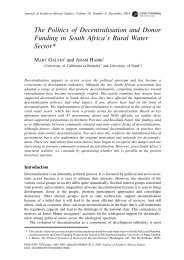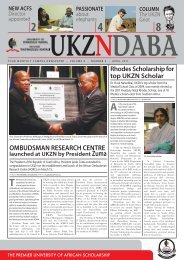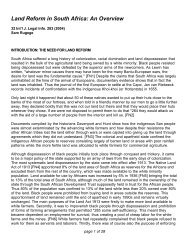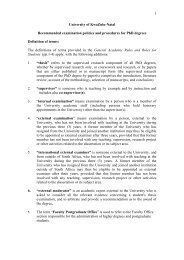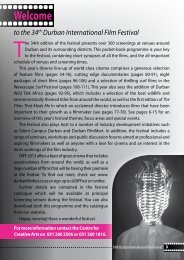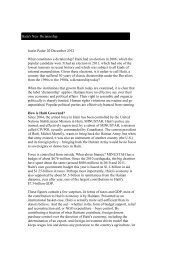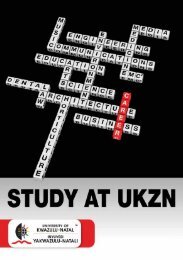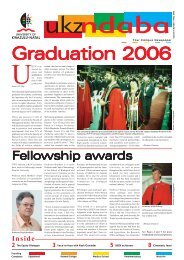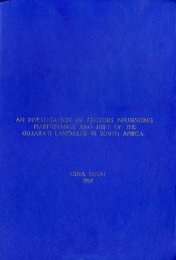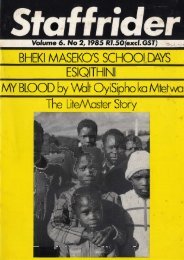Staff rider ProfileCharles MungoshiZimbabwe WritersTwo interviews by Jaki SerokeArmed struggle in Zimbabwe began in 1966. The climate of repressionduring the next fourteen years did not encourage the growth of theliterary arts. In that period some writers succumbed to censorship,others took the road of direct political involvement. There were alsothose who persevered and continued to write.On a recent trip to Zimbabwe we discussed the writers' struggle with twoZimbabweans, and also with research workers at the National Universitywho are concentrating on the history and continuity of Southern Africanwriting. Throughout our discussions the emphasis was on the solidarityof writers working in the Southern cone of the continent.^We were brought up inA Literary Desert"We grew up in a literary desert. There was not much to readabout ourselves, historically speaking, and everything weclung to was from 'down south'. We read writers like ThomasMokopu Mofolo, Ezekiel Mphahlele, Alex La Guma and soon at the time when we were at high school. These were thewriters who communicated best with us. At this stage, by theway, I performed very poorly in my formal scholarlyendeavours.I took an interest in writing, putting out a few poems hereand there. Writing soon overtook my studies. Lookingaround at my school-mates, I saw that no-one was satisfiedwith conventional reading which did not really relate to ourimmediate experience.I knew little about Zimbabwean literature until I cameacross Ndabaningi Sithole's The Polygamist. He had alsowritten African Nationalism. Lawrence Vambe had writtenAn Ill-fated People. These books were factual and could notbe measured in the creative sphere. The censors banned themat first sight. I grew worried, because at that stage one couldnot single out one novel proper by a Zimbabwean which wasenjoyable.There is a tendency among many young writers to fall forpoetry. Apparently they think it is easier. Until OrdinaryLevel at school, poetry is taken very naively. The things thatcome out of this naive source are not really poetry as such.It is a bit hard to say what Zimbabwe literature will belike now that we are independent. After so much human lossand suffering, we are most probably facing the theme ofreconstruction. The damage done to human minds has to betaken care of.I think that writing, at any time and in any place, shouldlook into the problems a society is facing. It should dig downinto other people's private affairs — trying to find the meaningof our communal experiences.We have come to realise that any writing in time of war isaffected by the confusion of such a situation. Our writingscarry within themselves a certain related feeling. There is atendency to try and play down what you are putting across.Charles Mungoshi is based in Harare. His novelWaiting for the Rain (Heinemann's African WritersSeries) won the 1976 Rhodesian PEN Prize and hisShona play has recently been published in Salisbury.He is currently employed on the editorialstaff of the Literature Bureau.Most of the time you feel you haven't really come out withwhat's happening.We never had a creative magazine in which we could pourout our feelings. Most commercial magazines were terriblyretrogressive: accepting only 'love' stories. So, our workswere stifled in a way. Most of us rejected the temptation towrite such things. For honesty's sake, you had to write and'snug' your manuscript away safely somewhere.Not until towards the end of last year when ZimbabweArtists and Writers Association was formed did writers cometogether. Under the old government it was difficult to grouptogether as artists. Unfortunately ZAWA disintegrated afterit was formed. As was the norm, those who held office werenot even writers.In this country there has been a kind of complacencyamong black artists. It has been really difficult to come togetheras artists. I think this is one of the reasons why mostwriters resorted to a political platform pure and simple.In 1969 we formed a Drama Society which I chaired forthree years. The problems we faced then are still aroundtoday. We worked with frustrated school-leavers who werestarry-eyed and thought of making a big name for themselvesin the theatre. But once they had learnt that the dirt roadhas many twists and turns in store, they shied away. Weplayed to near-empty houses. Following this, our actors didnot attend rehearsals. The group would disintegrate. Lack offinance and ramshackle venues was the last straw.On the other hand, white theatre was thriving and exploitingthis situation.But we still have some playwrights who write in Shonaand isiNdebele. Thompson Tshodzo is the most prominent.Most of the productions are in the format of townshipmusicals.I was once called upon to tighten up the plot of acommercially-inclined play for an established theatre company.The problem with these musicals is that in mostcases the lyrics do not follow the pattern of the content.STAFFRIDER, DECEMBER <strong>1980</strong>/JANUARY 1981
Charles Rukuni64 We are up againstCharles Rukuniworks as a foreigncorrespondentand is alsoattached to ablack weeklynewspaper, Nioto— owned byMambo Press. Hisshort story 'Whostarted the War?'was published inForced Landing.Relevant theatre could not emerge and boldly be part ofcurrent culture. The situation was meant to squeeze out anyform of popular creativity.We wrote basically about social problems. There was amarked tendency among writers to shy away from politicalissues. Most of the publishing outlets were government-run.At the Literature Bureau where I am working it was unpopularto write against the government. Many of the blackwriters resorted to things like traditional life — witchcraft,broken family life, old society versus modern lifestyle. In asense, traditional writing became the norm.I published a sixty-page collection of short stories entitledComing of the Dry Season. Some of these stories I hadwritten while still at high school. The book was published in1972 and was later banned in 1974. Four years after thebanning, the censors decided to lift the ban.Every two years the Rhodesian censorship board used toreview bans on creative literature, apart from works whichcirculated as underground writings. If the reasons no longerapplied the book would be unbanned.So, in my case a big argument arose between a leadingacademic and his English Literature staff and the Censors. Hewas Irish and knew a lot about that country's protest literature.He made the point that the book was not even in thetradition of protest literature. His major point was that thereis a difference between literature and propaganda. Thoughnot articulate enough, the book did at least pinpoint wheresome of the problems lay.Among the reasons for the banning was this: a characterwitnesses a harrowing scene where somebody is knockeddown by a car. Some blacks converge and ask the eye-witnesswho's done it. Without wasting time he says, 'That boer overthere.'Because of that line, the censors thought the book wouldcause racial friction.Professor McLachlan at the Zimbabwe University andother people at the teaching colleges came out boiling againstthe censors. Funnily enough, it was two years after the bookwas published that they first noticed it. In fact someonebumped into it while doing a thesis on Zimbabwe/Rhodesialiterature since 1900. This was how they first noticed Comingof the Dry Season. The book was published by OxfordUniversity Press — their branch in Nairobi, Kenya. Casualreaders were also in the dark about it until ProfessorMcLachlan decided to set it for his first year students.*Colonial Hangovers"We are up against 'colonial' hangovers. The free flow of creativeactivity was checked when we were a subjected people.Relevant drama does not attract much interest from showlovers. It complicates matters. If, for instance, your play isdramatized at a hall next to a cinema, even if you advertise itas a free show, people will flock into the cinema. I'm notsaying that films wouldn't have a large following anyway, ofcourse. They would, even when what we had on the screenwas first censored by the Publications Board in Johannesburgand then the local censors, here. Films distributed by Ster-Kinekor arrived here 'third-hand'.The Literature Bureau under the aegis of the governmentused to keep manuscripts for, say, three years before decidinganything. Most of the writers were discouraged. TheBureau was interested only in Shona and Ndebele writings.Most of the contributors were prominent people who hadreceived their education in British countries. For them writingwas only a show and they felt obliged to pass on theiracquired knowledge. An ordinary person might have hadmore to say, but lacked the necessary expertise.Peasants in the rural areas received more political education.They endured hostilities from both the white armyand the black reactionaries. But they fought back, and cameto know their history far better than any of us here in thecities. They fought to abolish the Tribal Trust Lands. Theyhad finger-tip contact with vakomana. They came to know alot about the liberation struggle. They were better off thanblacks who went to work at 8.30 a.m., had a big lunch,knocked off at 5.00 p.m. and after that went to a pub. Thenthe same thing the following day, forever.Did Rhodesian P.E.N, help?The Rhodesian P.E.N, did not create opportunities fornew writers. Instead they acknowledged works which werealready published: be it in the country or abroad. In theirliterary contests, the judges seemed prejudiced in favour ofworks which were not banned in Zimbabwe then. They alsoseemed to me to be influenced by what was currently doingwell on the book market.Were the writers able to find a way of getting their workspublished?Not many came out. There was a problem from thefinancial aspect. I don't know what happened to an artassociation which was meant to take a constructive line onthis issue. Most people preferred to stand by without reactingwhile the national leaders were still in prison. You shouldhave seen the way university students reacted when they readabout the resurgence of writing by blacks in your owncountry.Then there was censorship, too. The result is that writerslike Dambuzo Marechera of The House of Hunger fame arenot even known in their own country. They are established'outside' rather than 'inside'. Internally, there are a few likePatrick Chakaipa who are most popular. Thompson Tshodzois well-known as a Shona playwright. Their works get airedon the radio — sponsored by business concerns like theColgate-Palmolive firm.Cultural resistance under the Rhodesian regime was in apassive phase. The trash that was put out during those days isstill with us.aSTAFFRIDER, DECEMBER <strong>1980</strong>/JANUARY 1981 19




